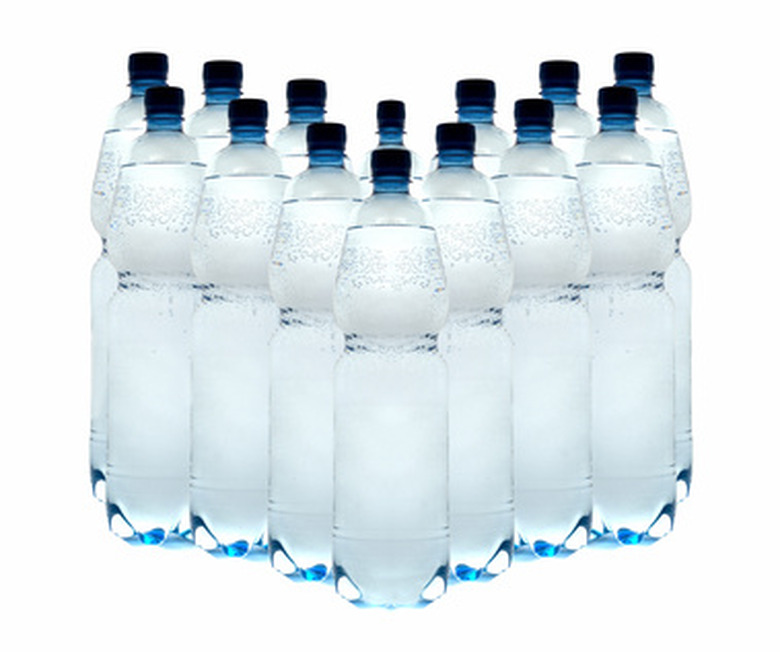The Effects Of Mineral Water On Plants
Watering your plants with bottled mineral water will waste your money to no good purpose. It's expensive, and it will cause mineral build-ups that will become toxic to your plants. The minerals added to enhance flavor and replenish sweated-out nutrients make these products a good idea for human consumption, but a terrible choice for plants. If you must water them from store-bought bottles, buy distilled or demineralized water instead.
Mineral Build-Up in the Soil
Store-bought bottles labeled as "mineral water" may contain from 1,000 to 3,000 parts per million dissolved solids. Watering plants with such mineral-rich water will very quickly create a mineral build-up in the soil. As plants "drink" the water, most mineral content remains behind due to being too big to pass through the semi-permeable membranes of root cell walls. The process of evaporation also removes water but leaves minerals in the soil. The more mineral water you pour in, the more minerals stay in the soil, eventually building up to toxic levels.
- Watering your plants with bottled mineral water will waste your money to no good purpose.
- The minerals added to enhance flavor and replenish sweated-out nutrients make these products a good idea for human consumption, but a terrible choice for plants.
As sodium, calcium and magnesium salts build up in the soil, you may see a white or tan crust at the interior edges of plant pots, on the soil surface or around the plant stems. You can reduce the build-up by flushing the pot with distilled water, rain water or melted snow. This will leach out some of the harmful mineral build-up.
Calcium Toxicity and Alkaline Conditions
One of the minerals commonly found in mineral water is calcium. Plants need calcium, but as with any nutrient, too much can be toxic. Excess calcium can lead to alkaline conditions, or high pH levels, in the soil. Calcium toxicity and high alkalinity can cause a "lockup" of iron, and potassium, magnesium and manganese such that plants suffer from a deficiency of these nutrients.
- As sodium, calcium and magnesium salts build up in the soil, you may see a white or tan crust at the interior edges of plant pots, on the soil surface or around the plant stems.
Saline Toxicity
Sodium is another common mineral present in bottled water products. Sodium build-up in the soil leads to saline toxicity and saline dehydration, both effects lethal to plants. Saline toxicity—too much salt in plant tissues—will disrupt processes necessary to food production in plant cells. And too much salt in the soil prevents water from getting into plant roots in the first place. This is due to the way osmosis works, moving water from the region where the salt water is more dilute to the region where it is more concentrated.
